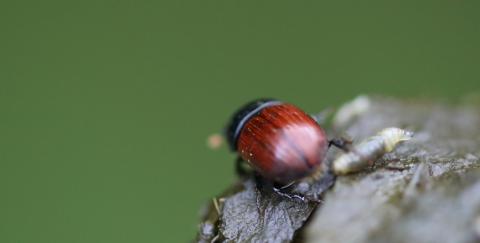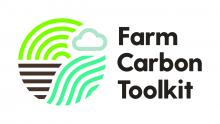Tuesday 11th and Wednesday 12th June 2024
Yeo Valley Holt Farm, Bath Road, Blagdon, Bristol BS40 7SQ
Please join us for our inaugural Dung Beetle Conference kindly hosted by Yeo Valley Organics and co-sponsored by First Milk and Yeo Valley.
About the conference
This practically applied gathering builds on the expertise of the Dung Ecology conferences which ran from 2009. Our Dung Beetle conference seeks to harness that body of work and apply it to stimulate action on integrating nature and farming and explore how we can enhance biodiversity to achieve regenerative farming outcomes.
Grazing ruminants are vital to our farmed environment. We need to better integrate livestock into all types of farming and ensure management interventions are well thought out, to achieve animal, soil, and end-consumer health and productivity.
We focus on the dung beetle as a centre point. These soil engineers, climate enhancers, and pathogen reducers are a keystone species and a powerful proxy for soil health and the wider vibrancy of soil life. At this conference, you will hear from regenerative farmers, soil scientists, environmental experts, agroecologists and veterinary scientists.
In the spotlight will be ‘integrated parasite management’ as a newly proven and effective approach to reducing reliance on parasiticides. This easy to adopt approach, not only helps our dung beetles, but opens the door to many multi-beneficial interventions and outcomes.
The expert speakers have been selected to enhance learning and encourage the mutual exchange of knowledge and experience.
For those interested in influencing policy, there will be an opportunity to be part of a consultation with the VMD, the body responsible for animal medicines in the UK.
We would expect this conference to appeal to absolutely everyone! But we recognise special interest from farmers, vets, entomologists, ecologists, advisors and those involved in veterinary medicine and relevant policy.
All are welcome, but space is limited!
Programme overview
Day 1: Tuesday 11th June
Evening meal optional
Day 1 will appeal to farmers, vets, ecologists, and a wider interest audience.
- Session focused around the dung beetle and the services it provides to agriculture (parasite control, nutrient cycling, soil health, reducing methane emissions from manure).
- Session by farmers and vets discussing their farms & case studies where they have reduced wormer use by a range of means.
- Last session will be led by non-veterinary advisors for agricultural management, such as grazing to favour agroecological approaches.
- Dung beetle safari in the afternoon
- Evening meal is an optional extra, payable separately
Day 2: Wednesday 12th June
We think Day 2 will appeal to those keen on finding and learning about ‘dungers’ and passionate about driving change across the industry.
- Larger scale dung beetle safari in beautiful and rare agroforestry setting
- Session demonstrating a wide array of positive impact projects and applied integrated parasite management practices across farms
- Vet-led case studies demonstrating good practice
- Industry change workshop: This session aims to bring people and ideas together from those passionate and experienced in this area with some of those working in policy to help find or start to drive solutions for the future
Tickets
Tickets include admission to the event, refreshments during the day(s) and lunch.
Evening meal (likely to be a hog roast) on Day 1 is optional and payable separately.
A pay bar will be available on the evening of Day 1.
Ticket prices
- Day 1 only: £60.00
- Day 2 only: £60.00
- Evening meal on Day 1: £20.00
- Day 1 and Day 2 (excluding evening meal on Day 1 which is payable separately): £90.00
- Speakers (excluding evening meal on Day 1 which is payable separately): free admission
Booking details below.
Parking
Free parking is available at the Yeo Valley site at: w3w///heads.checked.worms
Dietary requirements
Please let us know if you have any dietary requirements via info@farmcarbontoolkit.org.uk
Accommodation
Please see find local accommodation options here.
Booking
Please book via Eventbrite here



